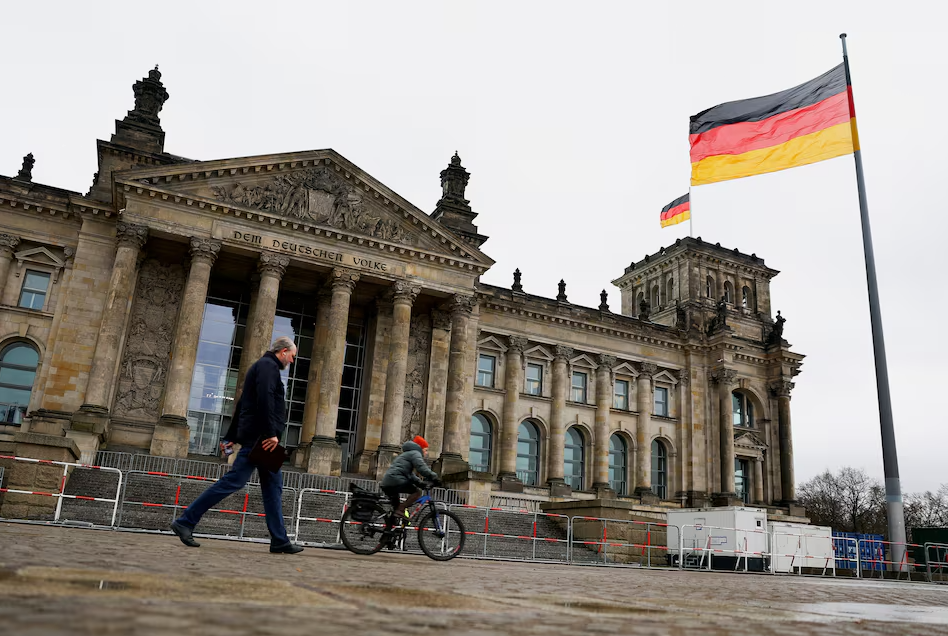
Millions of Germans will head to the polls on 23 February to vote in a snap election. Initially scheduled for September, the election was triggered by the collapse of the coalition of the Social Democrats (SPD), Free Democratic Party (FDP), and Greens in November last year.
During the 2021 election, climate change and energy were dominant concerns for voters. Despite 2024 being the hottest year on record, these issues have taken a back seat in the current election cycle, with political campaigns instead prioritising policies on migration and security.
Do German Voters Still See Climate Change as a Key Issue?
In 2021, climate change ranked ahead of immigration and COVID-19 as a top election issue, propelling the Greens to a record 14.7% of the vote. However, Germany's political climate has shifted, with economic concerns and security now overshadowing environmental policies.
Polling from Forschungsgruppe Wahlen indicates that voters currently rank peace and security (45%) and the economy (44%) as their top election issues. Climate protection falls to 22%, reflecting the shift in voter priorities.
Key Climate and Energy Issues in the 2025 Election
Despite the reduced focus on climate, several critical policy areas highlight the divide between Germany's major political parties:
1. Home Heating Laws
Germany's Building Energy Act amendment, passed in 2023, mandates that all newly installed heating systems must be at least 65% renewable. This law, aimed at reducing reliance on gas boilers, sparked controversy over potential financial burdens on consumers.
-
The CDU/CSU, FDP, AfD, and BSW all pledge to abolish the law.
-
The Greens propose increasing financial support for heat system installations, covering up to 70% of the cost.
-
The Left Party wants to fully subsidise heating system upgrades for low-income households.
2. EU Ban on Petrol and Diesel Cars
The EU plans to ban new petrol and diesel car sales from 2035, a crucial measure for cutting transport emissions. However, German politicians are divided:
-
The CDU seeks to reverse the ban.
-
The FDP and BSW want to scrap the 2035 deadline, advocating for a more gradual transition.
-
The AfD opposes the push for electric vehicles altogether.
-
The SPD and Greens support the EU ban and Germany's transition to electric mobility.
Germany remains the world's second-largest EV producer, and auto industry leaders are urging policymakers for consistency on emission regulations.
3. Net-Zero Emissions by 2045 Target
Germany's net-zero goal remains a key policy debate, with differing approaches among parties:
-
SPD supports the 2045 target but seeks a "pragmatic" approach with measures such as a motorway speed limit of 130 km/h and city-wide climate-neutral heating networks.
-
CDU/CSU backs the 2045 target but prioritises carbon pricing over stricter policies on heating and transport.
-
Greens oppose weakening climate policies and propose a mix of subsidies and emissions trading to meet the target.
-
Left Party pushes for a more ambitious 2040 net-zero goal, funded by wealth taxes and levies on private jets and luxury cars.
-
FDP favours delaying net-zero to 2050, rejecting interventionist policies and promoting market-driven solutions.
-
BSW does not see climate neutrality as feasible in the near future and calls for the abolition of CO2 pricing.
-
AfD denies human-caused climate change, calls for withdrawal from the Paris Agreement, and opposes any renewable energy expansion.
Will Climate Policies Influence the Election Outcome?
While climate change was a decisive issue in 2021, it is no longer at the forefront of public debate. The current political landscape is shaped by economic and security concerns, which have shifted voter attention away from environmental issues.
Nonetheless, the election's outcome will determine Germany's climate policies for years to come. The future of green energy, transport policies, and net-zero targets will depend on which parties enter the next governing coalition.
With voter priorities shifting, parties have adjusted their climate stances accordingly. Whether this shift will slow down or accelerate Germany's climate transition remains to be seen.